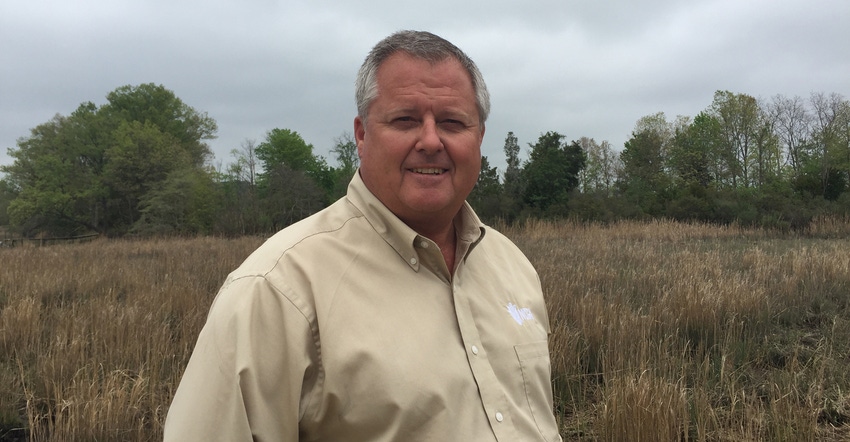
It’s finally gotten dry enough for Chip Bowling to apply fertilizer to some of the 700 acres he farms along the Potomac and Wicomico rivers in Charles County, Md.
He grows around 500 acres of corn, 600 acres of soybeans, 300 acres of wheat and bales about 150 acres of hay each year on his home farm, Bunker Hill Farm, as well as 1,800 acres of land he rents within a 15-mile radius.
After a wet 2018, he has one goal in mind.
“I’m just hoping to make some money,�” he says.
But while the farm is his home, much of his time is spent on the road as chairman of the U.S. Farmers and Ranchers Alliance. He was elected chairman of the alliance in December.
“It's been busy. We're making sure we're keeping our affiliates abreast of what we're doing," he says. “A lot of time in D.C. talking to policymakers and food influencers. It's fun, it's a lot of work, it's a lot of travel.”
The alliance was formed in 2011 and consists of more than 90 different agricultural organizations and partners. The goal is to have one unifying voice for farm groups that will better engage people on how food is produced. Bowling has been on the alliance board for four years as past president and chairman of the National Corn Growers Association.
Change in messaging
Bowling says the alliance’s goal has shifted somewhat. While the initial goal was to help educate consumers on modern farming practices, the focus has shifted to educating companies that produce the food.
“We have done a good job talking to consumers, having farmers talk to consumers. But what we found is the bigger companies that are processing and packaging the food, they're making sustainability claims about food they are packaging and they're doing that without talking to farmers,” he says. “We changed that focus to talk to them also. We want them to ask us why we're doing the things we're doing.”
Bowling says the alliance has launched a new initiative to double down on how agriculture uses science and technology to grow crops. He says the goal is to provide a farmer’s voice to food solutions with the science to back it up.
“We want all people to understand that it takes all forms of ag to feed the world,” he says. “Organic and conventional have to work together. We want to address the challenges of modern ag with technology.”
The alliance recently hired Nick Goeser, former vice president of production and sustainability at National Corn Growers Association, to be its new vice president of sustainability sciences and strategy. Bowling says Goeser will help the alliance to better understand science and the role agriculture plays, and how to communicate that with consumers and companies.
Unique perspective
Being so close to Washington, D.C., in an area that is heavily regulated, Bowling says it gives him a unique perspective on farming issues and how to deal with the public.
“I can showcase our farm being so close to D.C., on how we farm and why we farm the way we do,” he says.
Bowling says farmers are getting better at sharing their stories with people. While farmers sometimes don’t like speaking to big crowds of people, having the support of groups such as the alliance is helpful considering they have science and facts to back them up.
“Every time I get the opportunity to speak to a big group of farmers, one of my messages is to be proactive, not reactive,” he says. “It’s easy to tell your story. The hard part is when you get to the other talking points. We’re way better at it than we give ourselves credit for.”
Having traveled around the country, Bowling says farmers and ranchers are, for the most part, willing to change if needed.
“What I picked up is farmers and ranchers are always trying to do the best they can do when it comes to environmental stewardship and sustainability,” he says. “I’ve learned that they’re more willing to change. I’ve never gone anywhere and said, ‘Man, these guys are doing it the wrong way.’”
About the Author(s)
You May Also Like






